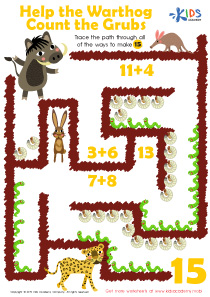Mathematical reasoning Normal Subtraction Worksheets for Ages 5-7
4 filtered results
-
From - To
Enhance your child's mathematical reasoning with our engaging Normal Subtraction Worksheets designed specifically for ages 5-7. These worksheets are crafted to support early learners in developing essential subtraction skills through fun and interactive activities. Each worksheet encourages critical thinking and problem-solving, allowing kids to explore various subtraction concepts in a playful manner. Parents and teachers can seamlessly integrate these resources into their lesson plans to reinforce classroom learning or support at-home study. With bright visuals and age-appropriate challenges, these worksheets will help young learners gain confidence in their abilities while mastering subtraction fundamentals. Download now to spark a love for math!
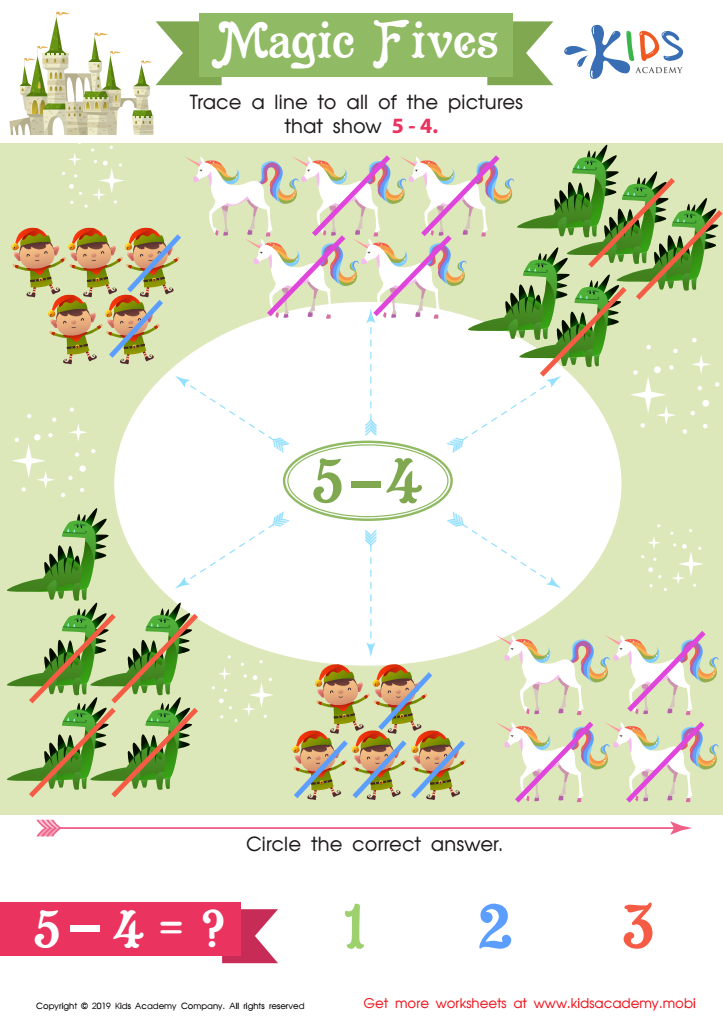

Magic Fives Worksheet
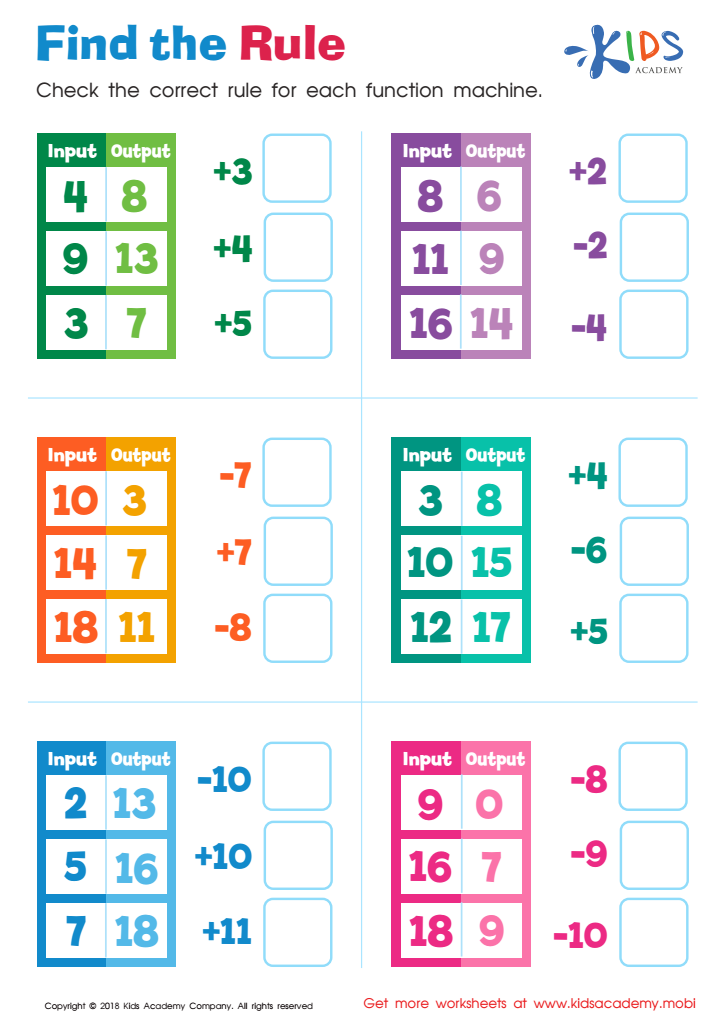

Find the Rule Worksheet
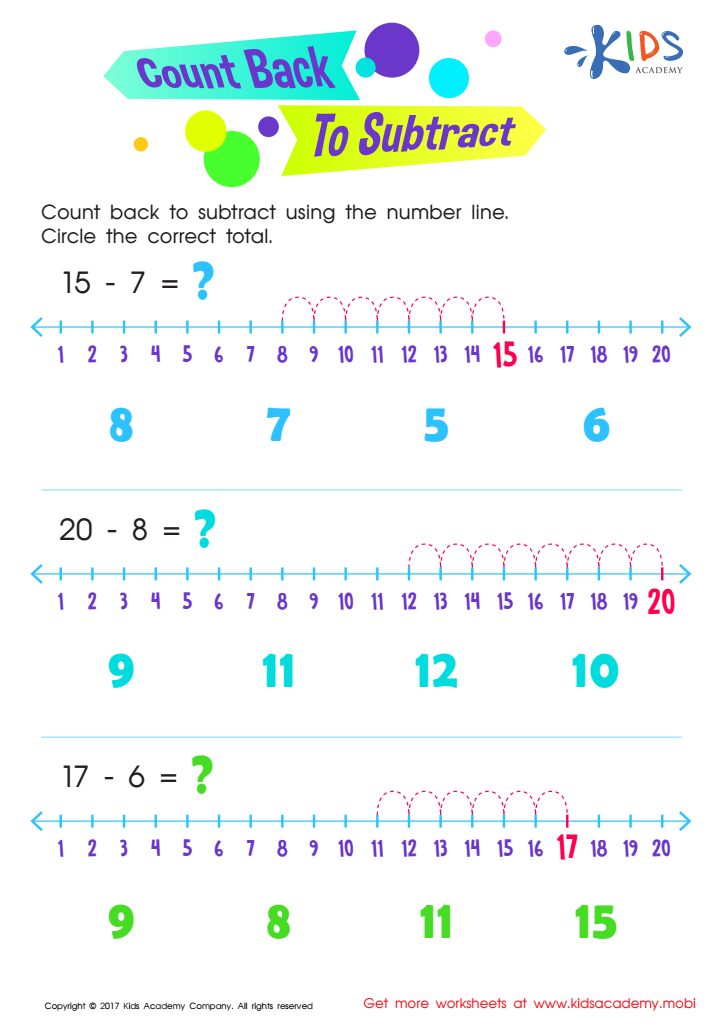

Count Back to Subtract Substraction Worksheet
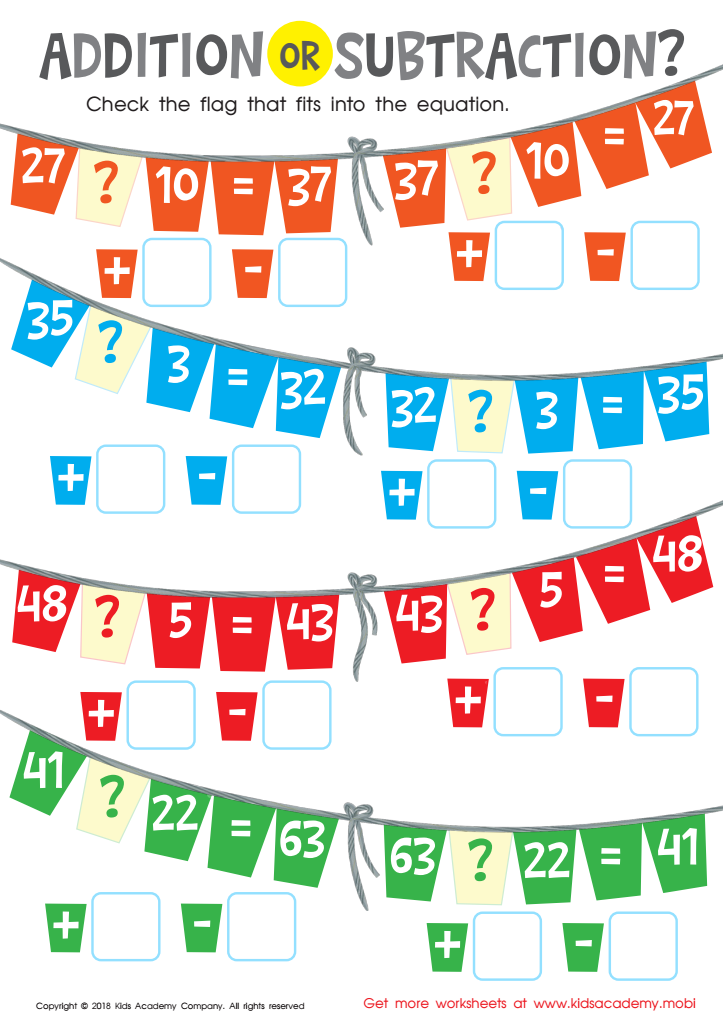

Addition or Subtraction? Worksheet
Mathematical reasoning, particularly in the context of normal subtraction, is crucial for children aged 5-7 as it forms the foundation of their overall mathematical understanding. At this stage of development, students are learning not just how to compute but also why and how numbers relate to one another. Understanding subtraction encourages logical thinking and problem-solving skills that are essential in everyday life.
Parents and teachers should care about this because strong mathematical reasoning fosters resilience, helping children approach challenges with a constructive mindset. When children grasp the concept of subtraction, they develop an understanding of quantity, comparison, and trade-offs, which enhances their cognitive abilities.
Moreover, during these formative years, children's progress in mathematics has long-term implications for their academic trajectory. Mastering basic subtraction can lead to improved performance in higher-level math, forming a critical competence in subjects such as science and technology.
Furthermore, engaging in mathematical reasoning activities encourages collaboration and communication skills, allowing children to articulate their thought processes. This paves the way for a positive relationship with mathematics, ensuring they view it as an accessible and enjoyable subject rather than a daunting field. Ultimately, nurturing early mathematical reasoning prepares children for future success in academics and beyond.
 Assign to My Students
Assign to My Students











